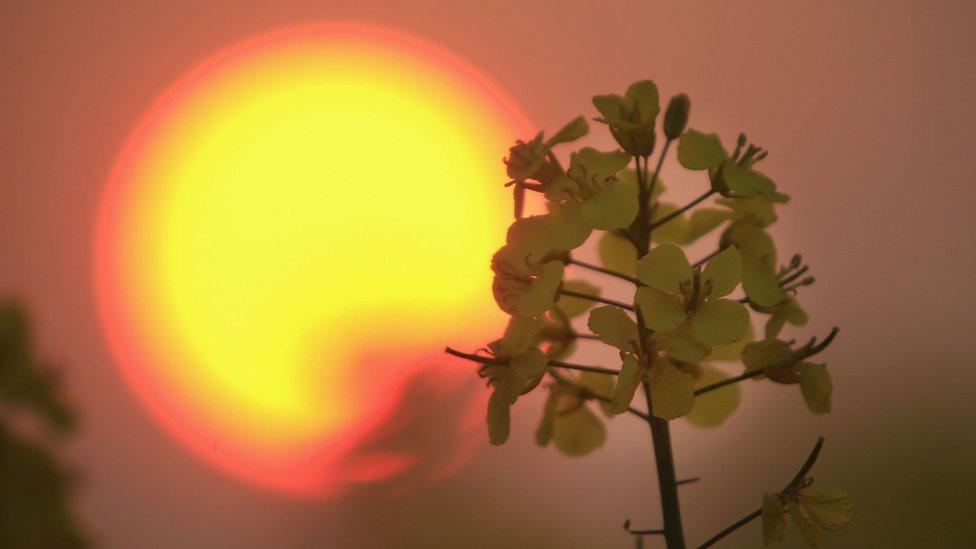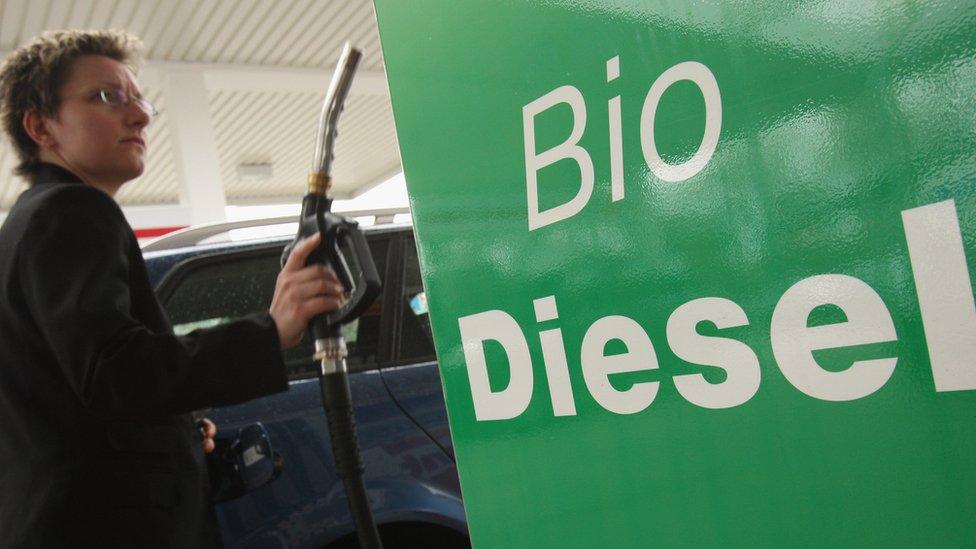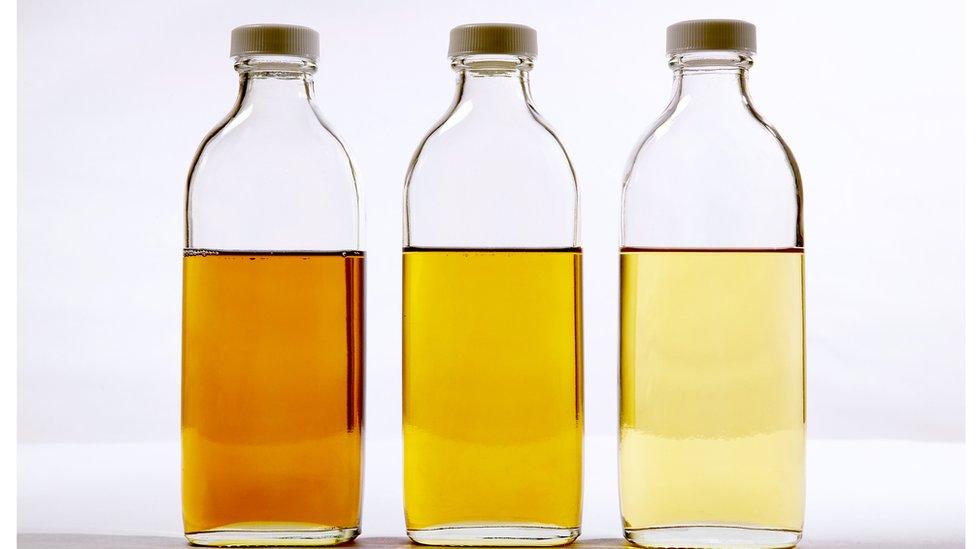'Dodgy diesel' threatens EU green fuel market
- Published

Oilseed rape has boomed across the EU as demand for biodiesel has increased
There are growing concerns that cheap imports of biodiesel from Poland could wreck the European market in biofuels.
All diesel sold in the EU needs to contain a percentage of fuel, external made from crops such as rapeseed.
But there are allegations that some operators in Poland are exporting biodiesel to the rest of Europe that should be consumed within the country.
It is believed that they are then passing off regular diesel as the blended variety in the domestic market.
Fraud or failure?
The European Biodiesel Board, external (EBB), which represents suppliers across 21 states, says they have seen "signals and suspicious activities" that all is not as it should be with Polish biodiesel exports.
Instead of blending rapeseed oil or other renewable sources with regular diesel to produce a biofuel, the EBB believes that some suppliers are meeting the obligation to provide green fuel at home by simply adding extra diesel to the mix and reserving the fuel made from crops.
"This could be based either on fraud or on a loophole of the Polish legislation, which may not be accurate to verify that the actual physical blending of the fuels has happened," the Secretary General of the EBB, Raffaello Garofalo told BBC News.
"It may be the authorities are just happy with an invoice which is shown to them that somebody has purchased biodiesel - but then there may not be a physical check that they are blended, this might be the question mark."

The EU has put regulations in place to ensure that biofuels are used in transport
As part of the EU's climate and energy strategy, the Commission put in place regulations that mandate a growing amount of fuel from renewable sources, such as rapeseed, cooking oil and other waste products.
The aim is to reduce carbon emissions from cars and trucks, but the policy has been criticised as it encourages farmers to use land for fuel instead of food.
In 2014 5% of fuels used for transport in the EU were grown as crops, with the majority turned into biodiesel.
According to the EBB, the amount of fuel being sold to the European market from Poland is believed to be around 30 million litres per month, making the country one of the EU's biggest producers.
"It is a huge quantity, and it is sold at a price which is the cost of the raw material without even the cost of the transformation into biodiesel," said Mr Garofalo.
"It is something that you cannot compete with, and these huge quantities are depressing the system."
Laundering diesel?
There are also concerns, raised by others experts, that black market diesel from Russia, Belarus and the Baltic states is being mixed with regular diesel in Poland and sold as a biofuel.
This allows unscrupulous dealers to "launder" the black market diesel, while also benefitting from the sales of legitimate biodiesel to European markets including the Netherlands, Belgium, Italy and France.
The EBB have warned operators who might buy any of this fuel that there could be repercussions. They say they have complained to the Polish authorities and to the European Commission and are demanding an enquiry.
"We can confirm that the Commission has received a complaint regarding biodiesel exports from Poland," said an EU spokesperson in a statement to BBC News.
"The Commission is currently analysing the information provided by the complainant."
The scale of biodiesel production in Poland is mostly based on rapeseed where more than 70% of the harvest is used as a raw material for the production of fuel.

Researchers want to make more use of waste products as the source of future biofuels
The International Sustainability and Carbon Certification (ISCC), the most widely used biofuel certification body in the EU, says it is concerned about the biodiesel reports from Poland.
"ISCC is taking the allegations seriously, and is ready to take appropriate actions to verify the allegations and to implement relevant measures if necessary. However, ISCC has up to now not received any concrete evidence from EBB which will be vital to focus investigations," they said in a statement.
People in the biofuels industry in Poland said they didn't accept the allegations.
"I cannot say that it is true or not, but I don't believe in the volumes because I know what the general production is," said Adam Stepien who is the director general of the Polish Biofuels Chamber, a body that represents manufacturers in Poland.
"But this suggestion could mean that there are no biofuels on the Polish market, I don't believe it," he told BBC News.
The EBB says that the continued selling of ultra-cheap biodiesel is a "flagrant breach of EU laws and principles."
"We know that the EU Commission is extremely worried, we know that the EU certification schemes are very worried," said Raffaello Garofalo.
"We can say that things hopefully will be moving very, very quickly because market wise it is a big problem."
Follow Matt on Twitter @mattmcgrathbbc, external and on Facebook, external.